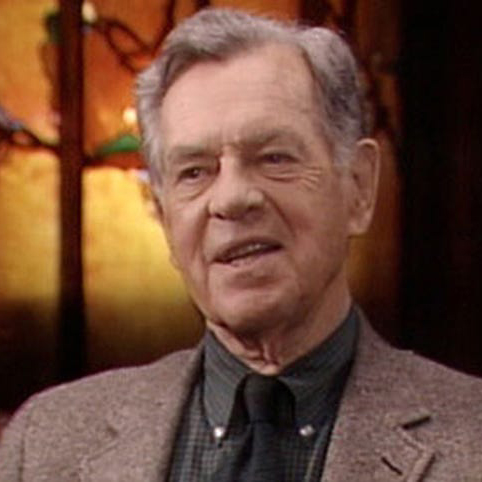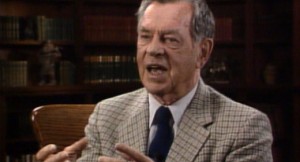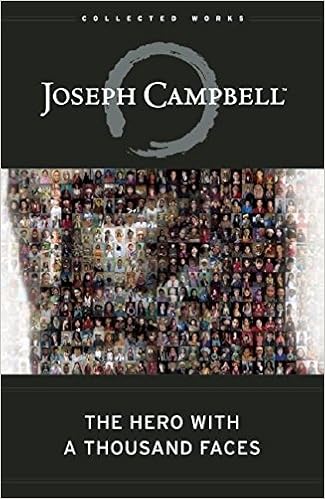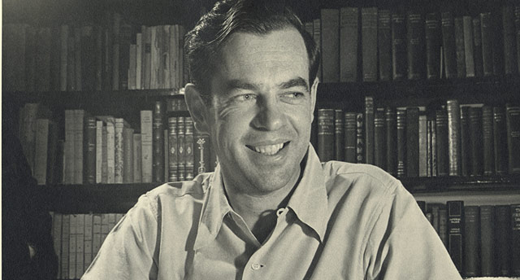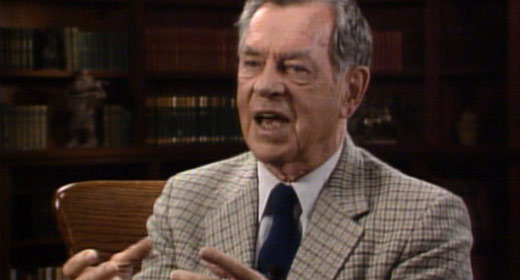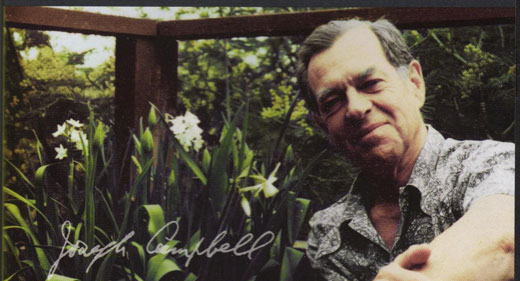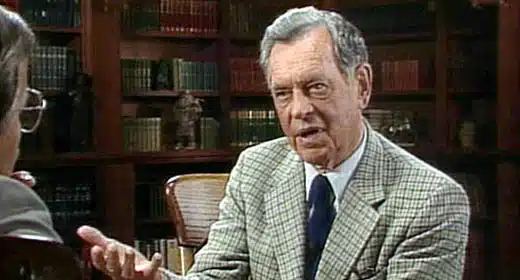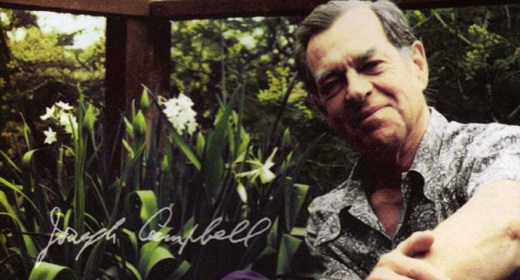Joseph Campbell (March 26, 1904 – October 20, 1987) was born in White Plains, NY, studied Native American folklore as a child and went on to become a Sarah Lawrence professor. Mythologist Joseph Campbell was a masterful storyteller and a renowned presenter of unifying concepts in comparative mythology with books like The Hero With a Thousand Faces, The Power of Myth and The Masks of God.
After a young Joe Campbell saw the Indians in Buffalo Bill’s Wild West Show in 1912, the future scholar became convinced that he had Indian blood. He read his way through the children’s section of the public library and was admitted to the adult stacks at the age of eleven. He devoted himself to every available fact about Native American life, including the reports of the Bureau of American Ethnology. By high school, he was already writing articles on Native American mythology, presenting many of the themes he would still be working in his eighties.
Campbell’s other early writing included the commentary on a Navajo ceremonial story Where the Two Came to Their Father (1943). He also co-authored A Skeleton’s Key to Finnegan’s Wake (1944). This was the first comprehensive analysis of Joyce’s complex novel. It was from Joyce that Campbell drew the concept of the monomyth. It was the publication of The Hero With a Thousand Faces in 1949 that established Joseph Campbell as the preeminent comparative mythologist of the twentieth century.
In his eighties, Campbell launched a multi-volume Historical Atlas of World Mythology that set out to investigate the major mythological periods. He proposed a stage model of cultural development. The earliest era is indicated by shamanistic hunter-gatherers. Campbell’s lasting eminence owes much to his gifts as a public speaker. He was able to convey the essence of ancient teachings through vivid storytelling and commentary.

